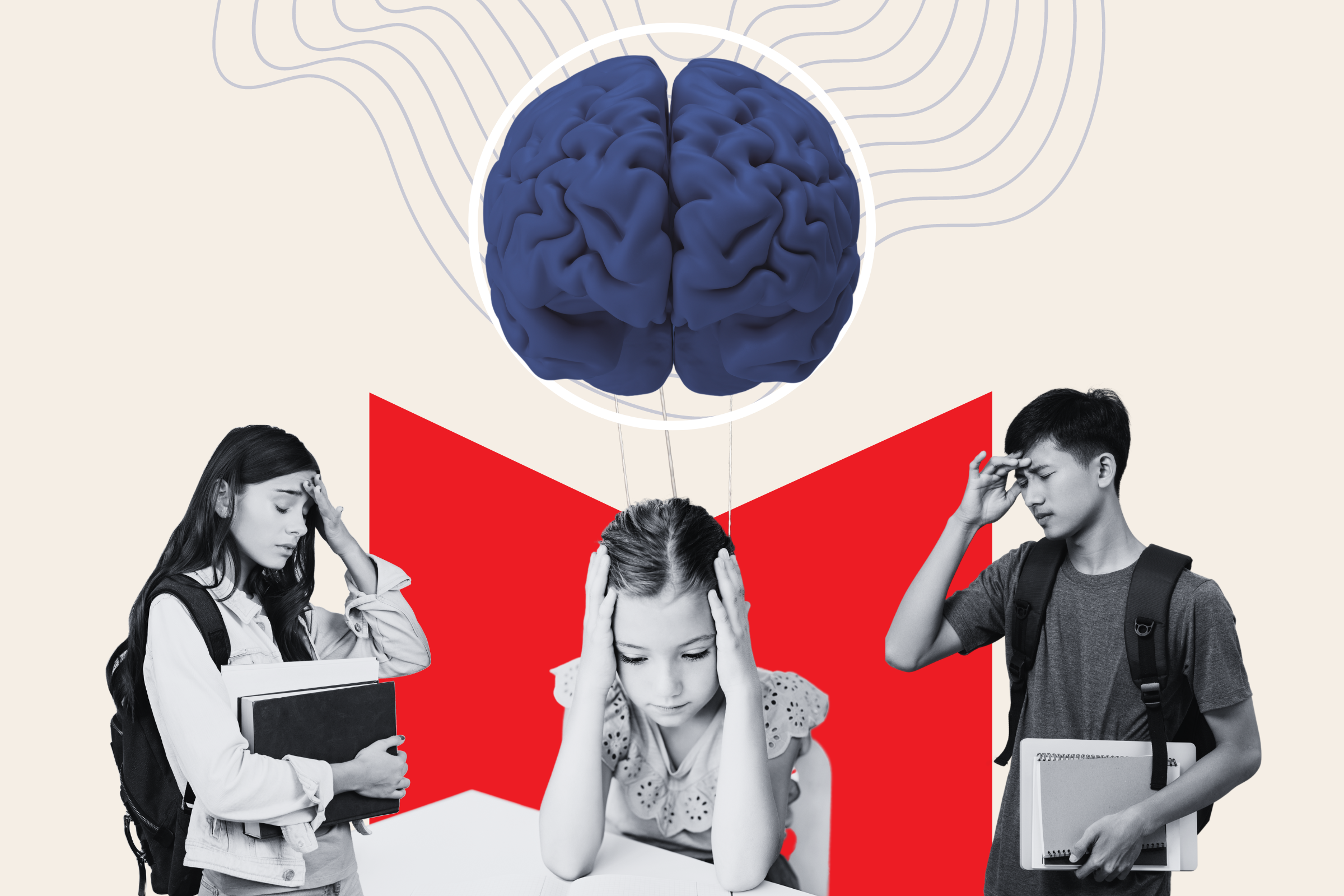If you watch the news or follow current events, stories about the youth mental health crisis shape how you think about young people—and how young people think about themselves.
Young people are facing challenges with mental health, it is urgent, and we do need to take serious action. But the science of framing—the study of how the choices we make in presenting information affect how people think, feel, and act—tells us that the crisis story we're told can backfire, leading to unintended negative consequences that reinforce stereotypes and block change.
There are four problems with the youth mental health crisis narrative.
First, it paralyzes us by focusing our attention on the problem's immensity without helping us see what we can do to solve it. The current crisis framing leaves people concerned, saddened, overwhelmed—but ultimately unable to act, because the problem feels too big.
The fact that crises are everywhere these days only compounds the problem by tapping into our robust sense of crisis fatigue. If all people hear about is the problem's magnitude, is it reasonable to expect them to imagine solutions?
Second, the crisis narrative advances already damaging stereotypes of young people as troubled teens, and adolescence—the period of development between ages 10 and 25—as an inevitably dangerous time. The crisis narrative's unbalanced negativity, with its almost sole focus on suicide rates and violent behavior issues, occludes the way supporting positive development—by increasing access to enriching activities, expanding eligibility for family therapy, providing robust school health services, or taking steps to address systemic racism, for example—is essential to build mental health.
Third, while this crisis narrative may raise awareness of the issue, research demonstrates awareness isn't enough and can backfire. More awareness of what is seen as insurmountable isn't helpful. Instead, the story needs explanation. When people understand how things work, they can better generate and evaluate solutions.
And finally, the crisis story directs our attention to dealing with problems that are already happening. Youth mental health needs to be proactively built rather than retroactively repaired.

So, what's the alternative to this crisis story?
Our research tells us that to inspire action and change, we need to move from a narrative that depresses and disengages to one that provides an accurate and motivating sense of what's possible.
This is not about sugarcoating the difficulties that young people face. It's about presenting a balanced picture that includes the potential for action to improve young people's lives and experiences.
We need:
—To balance stories about the urgency of the challenges young people face with ones that make it clear that they need environments that allow them to explore their identities, make a difference in the world, and establish close and trusting relationships with adults.
—Narratives that include more about adolescent development and how it works. A better picture of how young people are experiencing development—of what is developing, through which kinds of experiences, and with what kinds of effects—would allow us to appreciate how our health systems can support young people's well-being. A better understanding of how brain development supports social learning helps us see the need for young people to have opportunities navigating complex and meaningful relationships with peers and adults.
—Stories about what facilitates mental health and well-being, not just what threatens it.
—Content that features young people as active characters, with agency and control. These stories need to push us to see the need for young people's voices to inform the policies that affect them. Developmental science, and young people themselves, tell us that young people aren't passive actors in their mental health but rather need to experience agency, control, and power in their lives.
This new narrative is about balancing risk and opportunity. It's about mental health as well as what challenges it. It's about the role of agency and discovery in driving development. It's about the need to change our policies and systems so young people live in places where they have opportunities to engage with communities, take healthy risks, and have relationships with peers, and adults. It's about the support that all young people need, but only some receive.
Young people don't need to be our next crisis—but they do need us to do better. We can start by changing our story.
Nat Kendall-Taylor is a psychological anthropologist and CEO of the FrameWorks Institute.
Andrew J. Fuligni is a professor in the department of psychology at UCLA and co-executive director of the Center for the Developing Adolescent.
The views expressed in this article are the writers' own.
Uncommon Knowledge
Newsweek is committed to challenging conventional wisdom and finding connections in the search for common ground.
Newsweek is committed to challenging conventional wisdom and finding connections in the search for common ground.
About the writer
To read how Newsweek uses AI as a newsroom tool, Click here.





